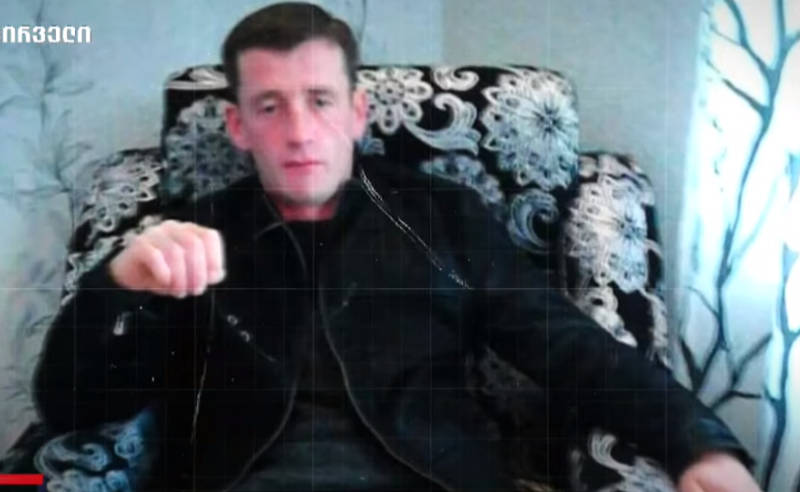საერთო ცხელი ხაზი +995 577 07 05 63


The Social Justice Centre addresses the alleged violence and death perpetrated by the de facto militia against Temur Karbaya in Gali district a few days ago, and calls on the authorities to develop a special action plan for the protection of human rights in the occupied territories within the framework of a consensus-based process that will use legal, diplomatic, and political mechanisms in such cases.
On December 9, the de facto government of Abkhazia officially confirmed the death of Temur Karbaya, a resident of Tkvarcheli village, through social media channels. As reported by the local newspaper "Nuzhnaya Gazeta," Karbaya was intercepted by three so-called militia at the Gali market on December 6, purportedly for a routine search (pat-down), and was subsequently temporarily detained in an isolator. On December 9, he was moved from the temporary isolation facility to Gali hospital with multiple injuries. According to information disseminated by the same newspaper, medical personnel stated that Karbaya exhibited injuries throughout his body, including bone fractures and bruises. Owing to the critical nature of his condition, on the same day, he was transferred to the central hospital of Sukhumi, where he succumbed to internal bleeding.
Regarding the incident, on December 11, the de facto Ministry of Internal Affairs of Abkhazia issued a statement, which was subsequently published on their Telegram channel. The Ministry does not confirm alleged beating of Karbaya but asserts that an investigation into his death is currently underway. Furthermore, as per the de facto Ministry of Internal Affairs, a statement was submitted to the Gali district Ministry of Internal Affairs on December 6 claiming that an individual was inebriated and using profane language in the Gali market. Notwithstanding the militia's intervention, the individual allegedly continued to engage in socially unacceptable behavior. The agency reports that the de facto law enforcement officers placed him in a temporary confinement cell for disobedience; where he reportedly exhibited aggressive behavior and attempted self-harm, necessitating his transfer to the district hospital for medical intervention.
In relation to the death of Karbaya, the Ombudsman of Abkhazia has condemned the alleged use of excessive force by so-called militia officers. Furthermore, he has called upon the relevant agencies of the de facto government to take all possible measures to protect human rights in this matter.
While various Georgian media outlets have reported the arrest of Abkhazian militiamen in connection with this case, official confirmation of this information is still pending at present.Top of FormBottom of Form
According to local accounts, such illicit activities by the self-proclaimed "militia" are not uncommon in the Gali region. Young men are frequently targeted in what are described as "raids," with militia personnel detaining locals without apparent justification. These detentions typically result in fines, but in certain instances, the situation escalates, leading to acts of violence. Residents of the Gali district are reluctant to openly discuss or criticize instances of police excess. Additionally, Georgians residing in Gali have endured years of systematic discrimination, facing precarious legal statuses and restricted mobility. The de facto Ministry of Internal Affairs of Abkhazia has been known to shield its personnel and often remains unresponsive to such incidents. The investigative structures, in practice, have shown limited effectiveness in probing cases. The prevailing law enforcement arbitrariness and impunity also pose a challenge for the population of Abkhazia (cases such as the case of Anzor Tarba, who was reportedly killed through torture in July 2019, continue to be actively discussed in Abkhazian society, highlighting concerns about the impunity of militia personnel.Top of FormBottom of Form)
The Gali district appears to be marked by a systematic pattern of illegal arrests, searches, and unwarranted restrictions on free movement, signaling a challenging human rights situation. Irakli Bebua has been held illegally in the custody of the self-proclaimed government of Abkhazia for the past three years, facing persistent threats to his health within the de facto penitentiary system of Abkhazia. Furthermore, Georgian citizens Kristine Takalandze and Asmat Tavadze continue to be unlawfully detained.Top of FormBottom of Form
Regrettably, the Incident Prevention and Response Mechanism (IPRM) pertaining to Abkhazia has been inactive for five years, leaving no direct dialogue platform for the Georgian government to discuss and address incidents with the self-proclaimed authorities of Abkhazia. Following the full-scale war in Ukraine and Russia's exclusion from multiple international mechanisms, the efficacy of utilizing international legal remedies in such cases is also diminished. Additionally, the Georgian government has not effectively employed the extraordinary mechanism of the "Otkhozoria-Tatunashvili list," a mutually agreed-upon form of state response to crimes committed in the occupied territories. It is noteworthy that the new draft of the action plan for the protection of human rights, developed by the government at the end of the current year, does not introduce new approaches aimed at improving the situation in this regard.
Certainly, human rights violations in conflict regions, including those perpetrated by de facto authorities, are deemed the responsibility of Russia due to its effective control in these areas. Nevertheless, the European Court of Human Rights mandates that states without effective control must proactively take measures to protect human rights in the region. This includes utilizing all available political, diplomatic, legal, administrative, and other means to address and mitigate human rights violations.
Despite the notable instances of rights violations in the occupied territories this year, there have been no reports of new initiatives from the state that would introduce innovative approaches and tools to fulfill positive obligations within this prevailing political and legal vacuum. It is imperative that any new vision comprehensively addresses the needs, rights, and interests of all population groups affected by conflicts and war, striving to be as inclusive as possible.
Given the aforementioned circumstances, we urge the government to:
The website accessibility instruction